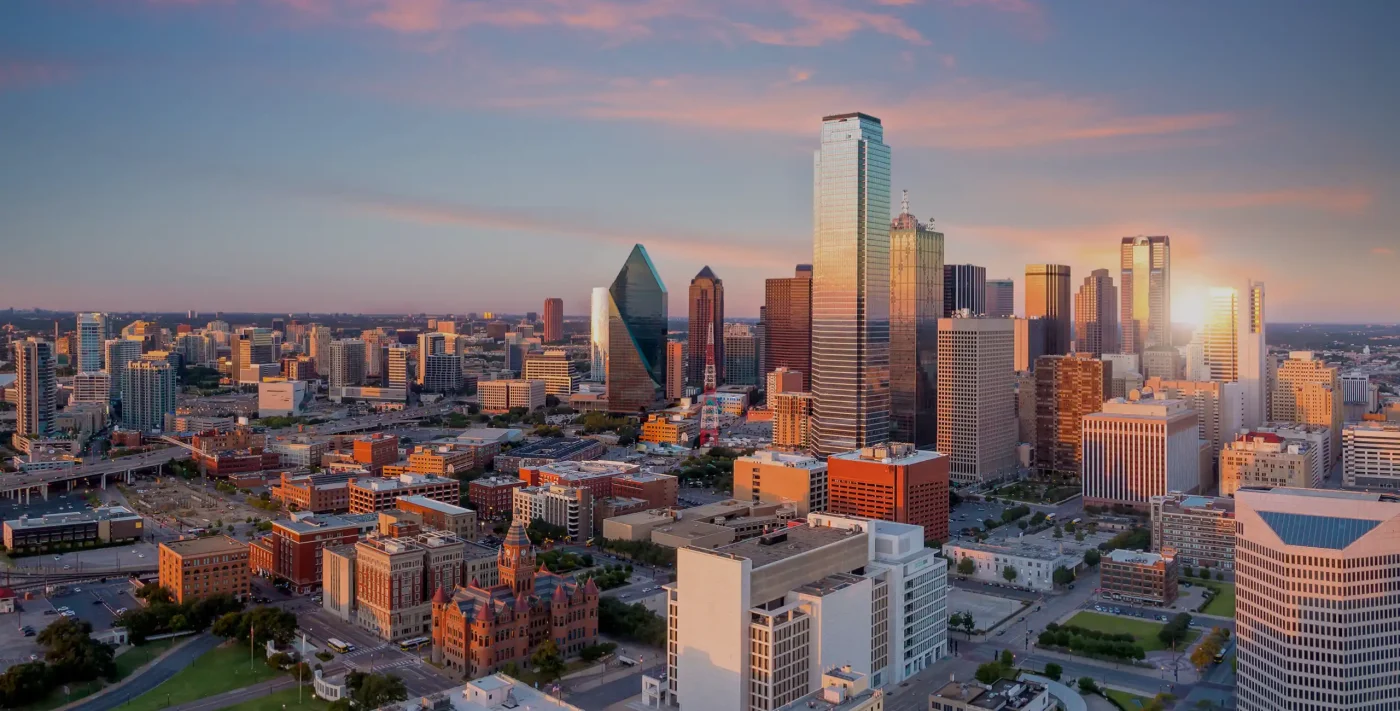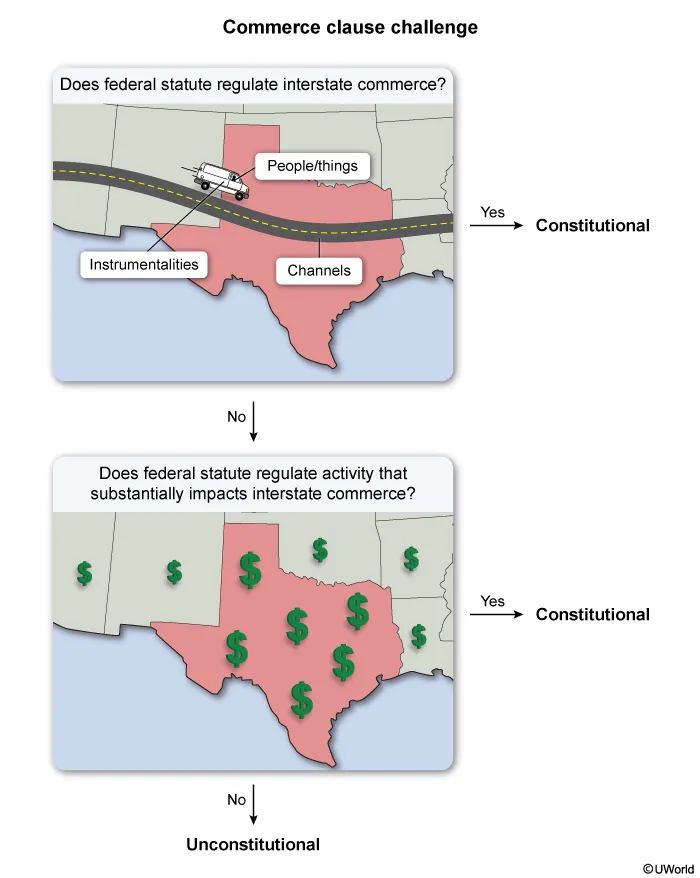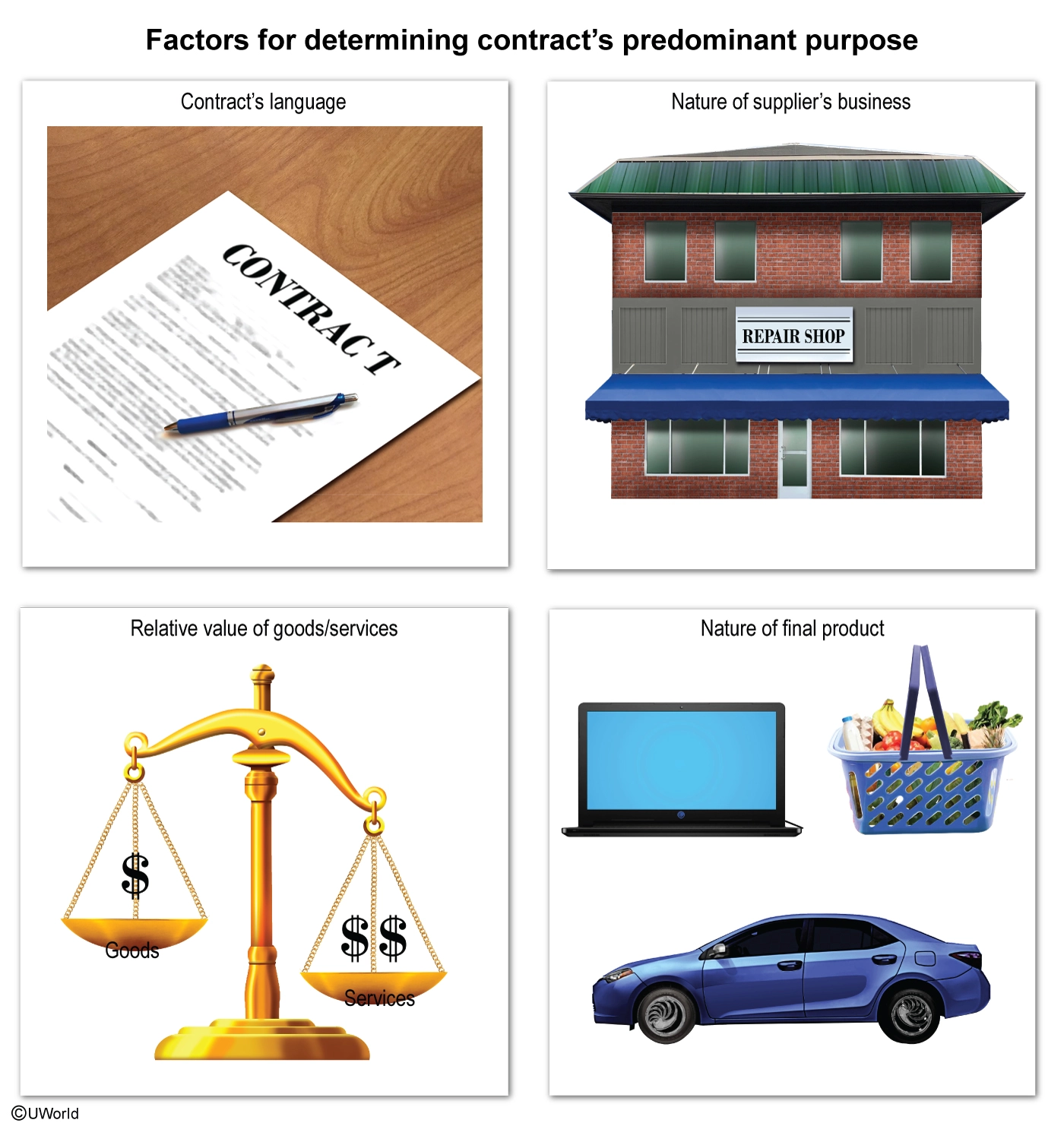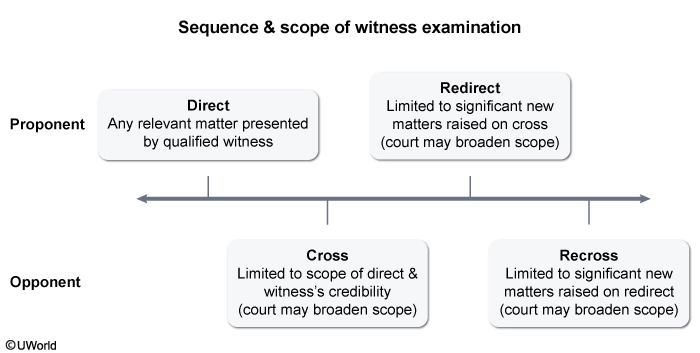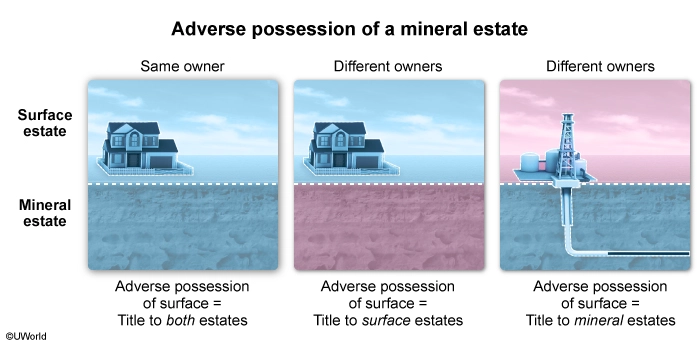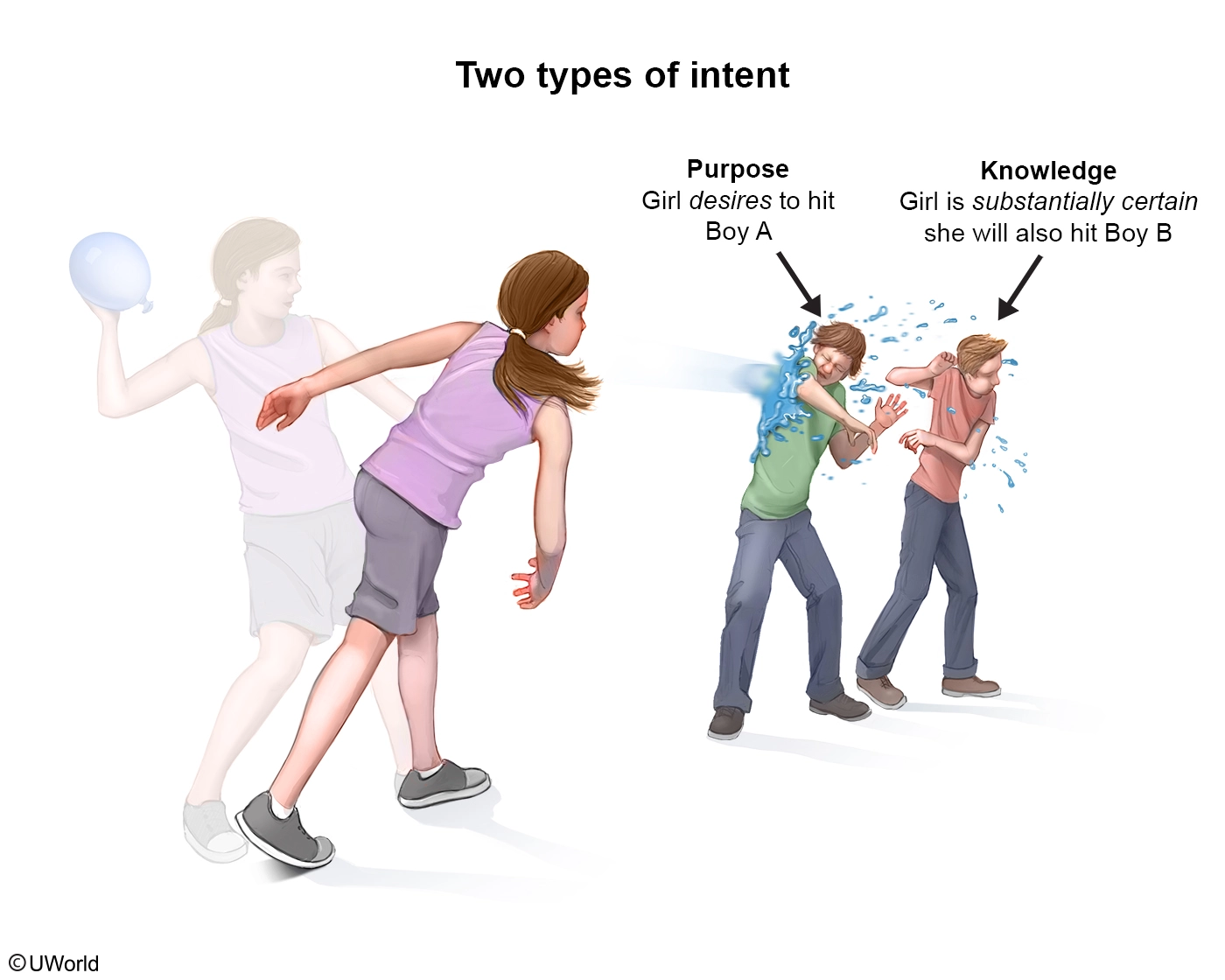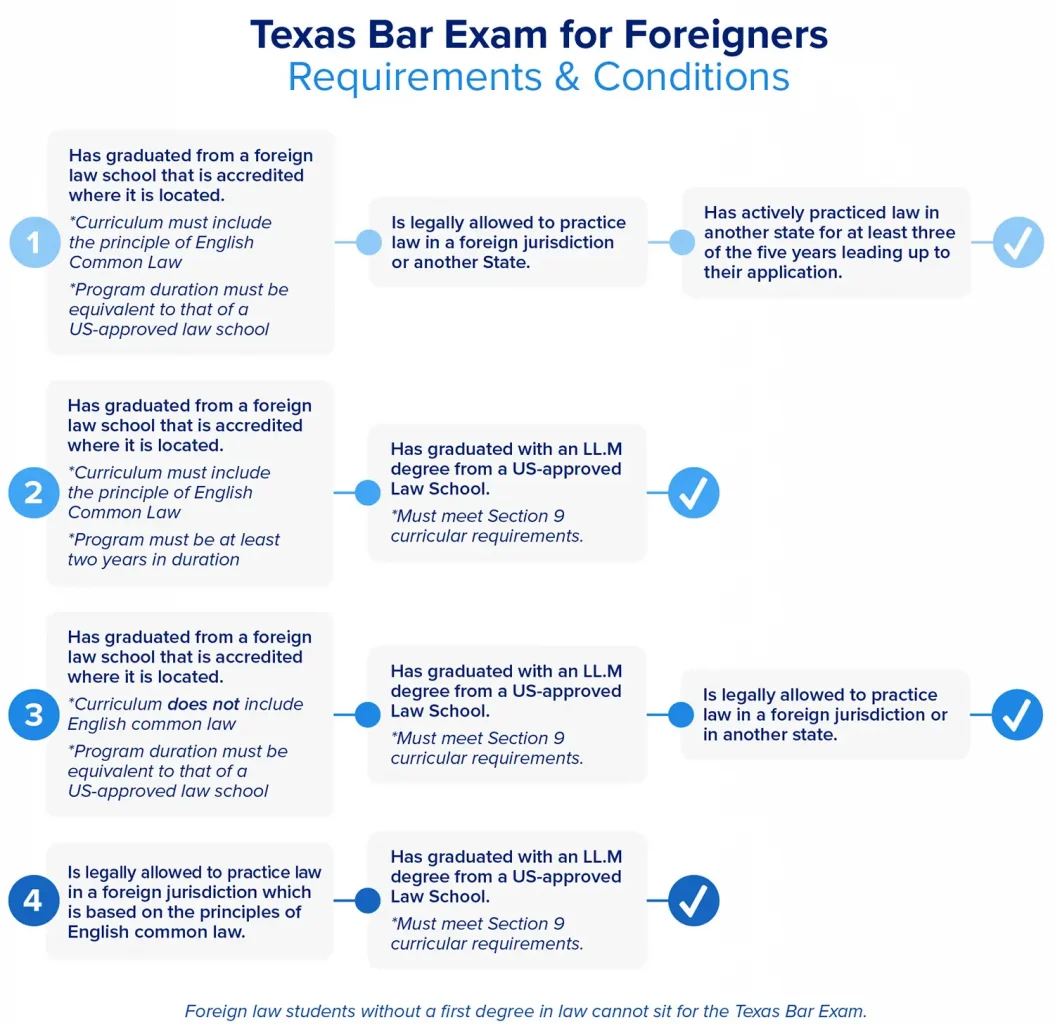The Texas Bar Exam is one of the most important exams you will ever take, and if you pass, it will open the door to your future as a legal professional. In February 2021, Texas adopted the Uniform Bar Exam (UBE®). The UBE has been adopted by 41 states or jurisdictions, making it easier to transfer to participating UBE jurisdictions. This article will offer insights into Texas Bar Exam results, important dates, pass rates, subjects, cost, format, scoring, and more.
Texas Bar Exam Structure
The minimum UBE total score required to be licensed in Texas is 270, reported on a 400-point scale. The Texas Bar Examination has three parts, weighted as follows to calculate a UBE total score:
- Multistate Bar Exam (MBE®) = 50%
- Multistate Essay Examination (MEE®) = 30%
- Multistate Performance Test (MPT®) = 20%
The UBE evaluates a candidate's readiness to practice law in any jurisdiction by assessing their competencies in general law principles, factual analysis, legal analysis and reasoning, and communication skills in these areas.
| Exam Sessions | Exam Component | Format & Hours |
|---|---|---|
| Tuesday Morning | MPT | 2 Task Items, 3 Hours |
| Tuesday Afternoon | MEE | 6 Essays, 3 Hours |
| Wednesday Morning | MBE | 100 Questions, 3 Hours |
| Wednesday Afternoon | MBE | 100 Questions, 3 hours |
The MBE consists of 200 multiple-choice questions administered in two three-hour sessions on day two of the exam. However, 25 of these questions are unscored pretest questions that the National Conference of Bar Examiners (NCBE®) experiments with for future exams. There are seven subject areas:
- Civil Procedure
- Constitutional Law
- Contracts
- Criminal Law and Procedure
- Evidence
- Real Property
- Torts
Examinees must select the best of four possible answers. Final scores are based on correct answers only.
The MEE consists of six 30-minute essay questions administered in a three-hour session in the afternoon of the first day of the exam. Each essay is assessed on a 6-point scale, with a 6 being the highest possible score and a 0 the lowest.
The MEE is designed to test an examinee's written communication proficiency, application of the law to various scenarios, and reasoning ability. According to the NCBE, the official purpose of the MEE is to test an examinee's ability to:
- Identify legal issues raised by a hypothetical factual situation.
- Separate material which is relevant from that which is not
- Present a reasoned analysis of the relevant issues in a clear, concise, and well-organized composition
- Demonstrate an understanding of the fundamental legal principles irrelevant to the probable solution of the issues raised by the factual situation
The MPT consists of practical questions using instructions, factual data, cases, statutes, and other reference material supplied by examiners. Candidates will answer two cases presenting simulated real-life scenarios to demonstrate their lawyering skills. Each case is assessed on a 6-point scale, with a 6 being the highest possible score and a 0 being the lowest possible score.
Texas Bar Exam Requirements, Dates, and Scheduling
The timely filing date is perhaps the most important date to mark in your calendar when preparing your application for the Texas Bar Exam. This deadline falls on September 1, 2023, for the February exam and February 1, 2024, for the July Exam. Failure to submit by these deadlines will result in extra fees. Below are details concerning important dates and requirements.
Requirements
Thousands of hopeful examinees take the Texas Bar Exam every year. To sit for the exam, individuals must meet either of the following requirements:
- Have a JD from an ABA-approved law school
- Have a JD from a state-accredited law school
Exam Dates
The UBE is administered, graded, and scored across all UBE member jurisdictions, allowing candidates to take and pass one UBE exam and conveniently transfer their scores to other (member) jurisdictions where they intend to practice law. Each year, the UBE is scheduled on the last Tuesday and Wednesday of February and July. Please take note of the following relevant exam dates and filing fees:
| Exam Date | February 27-28, 2024 | July 30-31, 2024 |
|---|---|---|
| Fee | $300 | $300 |
| Registration Opens (10 am CT) | June 30, 2023 | December 4, 2023 |
| Timely Deadline | September 1, 2023 | February 1, 2024 |
| $150 Late Filing Fee Deadline | November 1, 2023 | April 1, 2024 |
| $300 Final Filing Fee Deadline | December 1, 2023 | May 1, 2024 |
The February 2024 Texas Bar Exam site is at the Austin Convention Center. However, the July 2024 exam has multiple sites. See table below:
| July 2023 Texas Bar Exam Sites | |
|---|---|
| City | Address |
| Houston | NRG Center - Hall D One NRG Park Houston, Texas 77054 |
| DFW Area |
1200 Ballpark Way Arlington, Texas 76011 |
| Austin |
900 Barton Springs Road Austin, Texas 78704 |
| San Antonio |
901 North Loop 1604 San Antonio, Texas 78232 |
| Lubbock | Texas Tech University School of Law 1802 Hartford Lubbock, Texas 79409 |
| Waco | Baylor University School of Law 1114 S. University Parks Dr. Waco, Texas 76798 |
Scheduling
To schedule your Texas Bar Exam, you must create an ATLAS account through the Texas Board of Law Examiners website. Once registered, complete the Bar Exam Application and submit it electronically with the fee. Next, you will upload all the required documents and arrange for any third party to send the provided documents.
Texas Bar Exam Cost and Fees
- Declaration of Intention to Study Law: $190
- Bar Exam Registration:
- Texas Law Student: $300
- Out of State Law Student: $490
- U.S. Attorneys Licensed in Another State: $1,040
- Foreign-Trained Applicants: $1,140
- Reapplicants: $320
- Courtesy Seat: $300
- Texas Law Student: $300
- Out-of-State Law Student: $490
- US-Trained Attorneys: $1,040
- Foreign-Trained Applicants: $1,140
- Admission Without Examination: $890
- Foreign Legal Consultant: $990
- Foreign Legal Consultant Renewal: $150
- Military Attorney: $25
- Military Attorney Renewal: $25
- Temporary License for Military Spouse: $0
- Determination of Character and Fitness: $25
- February Exam App. filed by November 1: $150
- February Exam App filed by December 1: $300
- July Exam App. filed by April 1: $150
- July Exam App. filed by May 1: $300
- Laptop Application Fee: $50
- Incomplete Fee: $75
- Transfer Texas MBE score to another jurisdiction: $25
- Check Return Fee: $25
Source: Texas Board of Law Examiners - Deadlines
All Texas Bar Exam application payments are made online through your ATLAS account. There are no refunds or transferring of fees to future bar exams for those that end up not taking the exam. Any issues with processing should be forwarded to Texas.gov:
- 1-877-452-9060
- [email protected]
Cost-Saving Options
Bar exam costs can be prohibitive for most law school students and graduates. That’s why we recommend the following cost-savings options for your consideration to help you register and prepare for the Texas Bar Exam:
- State Bar of Texas Law Student Division Scholarships: Each year, the Law Student Division of the State Bar of Texas offers its members an exclusive $1,000 scholarship:
- Legal Professionalism Award (in the Fall)
- Essay Contest Award (in the Spring)
The Bar Exam Study Support Scholarship: This scholarship is offered to diverse Texas law school students by the State Bar of Texas Diversity in the Profession Committee to help members of minority populations attending law school enter the legal profession and further diversify the State Bar. Learn more. For more diversity scholarships and awards available to Texas law students, visit Diversity Scholarships & Awards | Diversity | About Texas Tech School of Law | School of Law | TTU.
Two scholarship recipients will be selected from the Law Student Division applicant, and the application is open to both Texas law school and out-of-state law student members. Learn more.
Texas Bar Exam Subjects and Topics
The Texas Bar Exam consists of a written section on day one (MEE/MPT) and a 200 multiple choice exam (MBE) on day two. The MBE is the most heavily weighted portion of the test at 50%, followed by the MEE (30%) and the MPT (20%).
The written section of the exam is an examinee's chance to prove their ability to apply their legal knowledge and reasoning to legal scenarios. In contrast, the MBE tests fundamental legal principles regarding Civil Procedure, Constitutional Law, Contracts, Criminal Law and Procedure, Evidence, Real Property, and Torts.
Testable Subjects on the MEE
To allow for score portability, the MEE portion of the Uniform Bar Exam has always consisted of the same six questions for all UBE jurisdictions. Similarly, the MEE Subject Matter Outline applies to all UBE jurisdictions. The following represent Texas Bar Exam subjects for the essay portion:
- Business Associations
- Civil Procedure
- Conflict of Laws
- Constitutional Law
- Contracts
- Criminal Law and Procedure
- Evidence
- Family Law
- Real Property
- Secured Transactions
- Torts
- Trusts and Estates
MEE subjects vary by exam version. For example, subjects may be paired or omitted altogether. Historically, some subjects (e.g., Civil Procedure) have appeared frequently, while others (e.g., Criminal Law) are rarely tested. Additional information on the list of subjects and subtopics can be found at MEE Subject Matter Outline.
Testable Subjects on the MBE
Only 175 of the 200 MBE multiple-choice questions are actually graded. The remaining 25 are pretest questions for future exams. Examinees will spend two three-hour sessions on day two answering questions on the following subjects:
- Contracts
- Constitutional Law
- Criminal Law and Procedure
- Civil Procedure
- Evidence
- Real Property
- Torts
UWorld MBE Sample Questions
Quality speaks for itself. Try some of our free MBE sample questions below.
A husband and wife were married in State A and lived there for 10 years before separating. One month later, the wife permanently moved to State B and immediately filed for divorce in a federal court in State B. The wife claims that she is entitled to $300,000 in alimony. The husband appeared in the action and has filed a motion to dismiss for lack of subject-matter jurisdiction.
Should the court grant the motion?
- No, because the court has diversity jurisdiction over the case.
- No, because the husband waived a subject-matter jurisdiction challenge by appearing in the case.
- Yes, because state courts have exclusive jurisdiction over this type of action.
- Yes, because the wife did not establish a domicile in State B.
Explanation:
| Federal diversity jurisdiction exceptions |
|
Federal courts cannot exercise diversity jurisdiction over cases involving:
|
A federal court must possess subject-matter jurisdiction to hear the merits of a case before it. Subject-matter jurisdiction can be established through either:
- federal-question jurisdiction – when a claim arises under the U.S. Constitution, a treaty, or federal law (not seen here) or
- diversity jurisdiction – when the amount in controversy exceeds $75,000 and the opposing parties are citizens of different states.
Here, diversity jurisdiction is established since the wife claims that she is entitled to $300,000 and the parties are citizens of different states (States A and B). However, federal courts cannot exercise diversity jurisdiction over cases involving probate matters or domestic relations. Instead, state courts have exclusive jurisdiction over these types of actions (Choice A).* Therefore, the husband's motion to dismiss should be granted.
(Choice B) A challenge to subject-matter jurisdiction is never waived. However, a challenge to personal jurisdiction is waived if the defendant has voluntarily appeared in the case, unless it was a special appearance for the express purpose of objecting to personal jurisdiction.
(Choice D) An individual is a citizen of the state where he/she is domiciled—ie, physically present with the intent to remain indefinitely. Since the wife permanently moved to State B, she has established her domicile there.
Educational objective:
Federal courts cannot exercise diversity
jurisdiction over cases involving probate matters or domestic relations. Instead, state courts
have exclusive jurisdiction over these types of cases.
Bluebook Citations :
- Ankenbrandt v. Richards, 504 U.S. 689, 703–04 (1992) (explaining the domestic-relations exception to diversity jurisdiction).
A congressional committee investigated the pharmaceutical industry and found that the high cost of prescription drugs purchased and sold in the United States negatively impacted the nation's economy and the health of its citizens. In response, Congress passed a statute that regulates "the retail prices of every purchase or sale of prescription drugs in the United States."
A group of pharmaceutical companies challenged the constitutionality of this statute in federal court.
What is the strongest argument in support of the constitutionality of this statute?
- Congress may enact statutes for the general welfare.
- Congress may regulate the prices of all domestic purchases and sales of goods.
- The Constitution grants Congress the power to regulate the interstate transportation of prescription drugs.
- The purchases and sales of prescription drugs in the United States substantially impact interstate commerce in the aggregate.
Explanation:
The commerce clause gives Congress broad power to regulate interstate and foreign commerce. This includes:
- the channels of interstate and foreign commerce (eg, roadways)
- the instrumentalities of interstate and foreign commerce (eg, vehicles)
- persons and things moving in interstate or foreign commerce (eg, goods and services) and
- in-state activities that, singly or in the aggregate, substantially impact interstate or foreign commerce.
Since Congress's commerce power is broad, federal statutes are constitutional if there is any rational basis for concluding that the regulated activity substantially affects interstate or foreign commerce. This can be shown through express congressional findings.
Here, the federal statute regulates the retail prices of prescription drugs in the United States. Congress has the authority to regulate such products' interstate transportation, but this statute also regulates in-state purchases and sales (Choice C). Since the congressional committee found that the high cost of prescription drugs negatively impacted the nation's economy, it is rational to conclude that their aggregated in-state purchases and sales substantially impact interstate commerce. Therefore, this is the strongest argument to support this statute.
(Choice A) The taxing and spending clause empowers Congress to tax and spend for the general welfare. But regulating prices is not equivalent to taxing or spending.
(Choice B) Congress cannot regulate the prices of every domestic purchase and sale of goods since it cannot regulate purely in-state sales that do not substantially affect interstate commerce.
Educational objective:
The commerce clause empowers Congress to regulate (1)
channels and instrumentalities of, (2) persons and things moving in, and (3) in-state activities
that—singly or in the aggregate—substantially affect interstate or foreign commerce.
Bluebook Citations :
- Gonzales v. Raich, 545 U.S. 1, 17 (2005) (explaining Congress's broad authority under the commerce clause).
The owner of a new office building contracted with a well-known landscaper to design and install landscaping around the building for $30,000. The agreement was memorialized in writing, was signed by both parties, and called for a budget of $5,000 for trees, shrubs, sod, and materials. The contract required the landscaper to complete the work within six months. Due to an unexpected increase in the price of trees and shrubs, the landscaper abandoned the project and never completed any of the work.
Three years after the landscaper's deadline, the building owner sued the landscaper for breach of contract. In the jurisdiction, the statute of limitations for breach of a services contract is two years after the breach, and the statute of limitations for breach of a sale-of-goods contract is four years.
Can the owner recover damages from the landscaper?
- No, because the contract is divisible with respect to the services and goods, and the landscaper's breach is therefore subject to the two-year statute of limitations.
- No, because the contract primarily calls for services, and the landscaper's breach is therefore subject to the two-year statute of limitations.
- Yes, because the landscaper's breach was a result of an increase in the price of goods, and his breach is therefore subject to the four-year statute of limitations.
- Yes, because the landscaper's breach was willful, and he is therefore estopped from denying that his breach is subject to the four-year statute of limitations.
Contracts for the sale of goods are governed by Article 2 of the Uniform Commercial Code (UCC), while contracts for services are governed by common law. However, some contracts involve the sale of goods and the rendering of services. To determine which law applies to a "mixed" or "hybrid" contract, courts ask whether its predominant purpose was the sale of goods or the rendering of services. The following factors are relevant to this determination:
- The contract's language
- The nature of the supplier's business (ie, whether it typically provides goods or services)
- The relative value of the goods and services
- The nature of the final product (ie, whether it can be described as a good or service)
Here, the building owner contracted to buy goods (eg, trees, shrubs, sod) and services (ie, designing and installing the landscaping). The owner likely hired the well-known landscaper due to his skill in performing landscaping services, and the $5,000 budget for goods was just one-sixth of the $30,000 contract price. Therefore, the contract primarily calls for services and is subject to the jurisdiction's two-year statute of limitations. And since the owner sued three years after the breach, the owner cannot recover damages from the landscaper.
(Choice A) The predominant-purpose test is unnecessary when a contract is divisible—ie, when the payment for goods can easily be separated from the payment for services. But here, the contract is likely indivisible since it combined the sale of the trees, shrubs, and sod with their installation.
(Choices C & D) The predominant-purpose test focuses on the parties' reason for entering the contract—not for breaching it. Therefore, it is irrelevant that the landscaper's breach was (1) a result of an increase in the price of goods or (2) willful.
Educational objective:
Sale-of-goods contracts are governed by the UCC,
while services contracts are governed by common law. When a contract calls for the sale of goods
AND the rendering of services, the contract's primary purpose determines whether the UCC or
common law applies.
Bluebook Citations :
- Bonebrake v. Cox, 499 F.2d 951, 960 (8th Cir. 1974) (applying the predominant-purpose test to determine which statute of limitations applies to a mixed contract for goods and services).
- Princess Cruises, Inc. v. Gen. Elec. Co., 143 F.3d 828, 833 (4th Cir. 1998) (listing factors that courts consider when applying the predominant-purpose test).
A man and a woman dated for several weeks. During that time, the man repeatedly asked the woman to have sex. Each time, the woman responded that she would not have sex with the man unless they were married. One evening, the man promised the woman that they would elope the following weekend if she would agree to have sex. The woman agreed and the couple had sex. The following weekend, the man told the woman that he had no intention of eloping and only made that promise to get the woman's consent. The woman reported the man to the police, who later arrested and charged the man with rape.
Is the man guilty of rape?
- No, because fraud in factum did not negate the woman's consent.
- No, because fraud in the inducement did not negate the woman's consent.
- Yes, because the woman's consent was obtained by fraud in factum.
- Yes, because the woman's consent was obtained by fraud in the inducement.
Explanation:
| Consent to sexual intercourse obtained by fraud | ||
| Type of fraud | Definition | Effect |
| In factum |
|
Negates victim's consent |
| In inducement |
|
Does not negate victim's consent |
In most modern jurisdictions, rape is defined as sexual intercourse with another without that person's consent.* This means that rape did not occur if the victim consented to sexual intercourse. However, a victim's consent may be ineffective if it was obtained by fraud. There are two types of fraud:
- Fraud in factum – when consent is obtained by fraud regarding the nature of the act itself, leaving the victim unaware that he/she consented to sexual intercourse and negating the victim's consent
- Fraud in the inducement – when consent is obtained by fraud regarding what the victim knows is an act of sexual intercourse, which does not negate the victim's consent
As a result, consent obtained by fraud in factum is not a valid defense to rape, but consent obtained by fraud in the inducement is a valid defense.
Here, the man falsely promised the woman that they would elope if she agreed to have sex with him. Since the woman knew that the act to which she consented was sexual intercourse, her consent was obtained by fraud in the inducement (Choices A & C). This type of fraud did not negate the woman's consent, so the man is not guilty of rape (Choice D).
Educational objective:
Fraud in factum occurs when the fraud pertains to the nature of the act itself and negates a rape victim's consent. In contrast, fraud in the inducement occurs when fraud is used to gain consent to what the victim knows is an act of sexual intercourse and does not negate the victim's consent.
A plaintiff sued a defendant for negligence to recover damages that the plaintiff suffered as a result of a crash between the two parties. At trial, the plaintiff's attorney called the plaintiff's wife to testify as to what she witnessed on the day of the crash. On cross-examination of the wife, the defendant's lawyer elicited several responses that tended to show that the plaintiff's actions constituted contributory negligence. The plaintiff's attorney seeks to ask the wife several questions on redirect examination, but the defendant's attorney objected.
What is the strongest argument that the court must allow redirect examination of the wife?
- The plaintiff's attorney failed to provide all significant information on direct examination.
- The plaintiff's attorney seeks to reiterate the necessary elements of the claim.
- The plaintiff's attorney seeks to reply to all matters raised on cross-examination.
- The plaintiff's attorney seeks to reply to significant new matters raised on cross-examination.
Explanation:
Federal Rule of Evidence 611 gives trial courts the authority to exercise reasonable control over the mode and order of examining witnesses at trial. This includes the discretion to determine whether—and to what extent—redirect examination of witnesses should be permitted. But when a party raises a significant new matter while cross-examining a witness, the court must allow the opposing party to address that matter through redirect examination.
Therefore, the strongest argument for allowing redirect examination of the plaintiff's wife is that the plaintiff's attorney seeks to reply to significant new matters that were raised on cross-examination.
(Choice A) A party is expected to elicit all significant information during direct examination of a witness. Therefore, a court need not permit redirect examination to allow the party to provide information inadvertently omitted on direct examination.
(Choices B & C) Redirect examination is generally limited to significant new matters raised on cross-examination. Therefore, a party is not entitled to redirect examination to (1) reiterate information like the necessary elements of the claim or (2) reply to all matters addressed in cross-examination.
Educational objective:
When a party raises a significant new matter on cross-examination of a witness, the court must allow redirect examination by the opposing party to address that matter.
Bluebook Citations :
- Fed. R. Evid. 611 (explaining the mode and order of examining witnesses).
Twenty years ago, a man who owned a 20-acre ranch agreed to sell all of his mineral rights to his neighbor. The man executed a warranty deed conveying the mineral estate to the neighbor, who failed to record the deed.
The following year, a woman moved her mobile home onto an undeveloped five-acre portion of the man's ranch. After the woman had lived on the property for 10 years, a local drilling company began operations on a nearby tract to drill a natural gas well. Believing that the woman owned the property, the drilling company approached the woman about leasing the mineral rights on her property and requested that the woman sign a lease of her mineral rights. The woman signed the lease as requested, and it was promptly and properly recorded. The drilling operations were successful, and the drilling company prepared to distribute profits from royalties. However, a dispute arose between the neighbor and the woman, as both parties claim ownership of the minerals.
The period of time to acquire title by adverse possession in the jurisdiction is 10 years.
In an action to determine title, is the court likely to award title to the mineral estate to the woman?
- No, because the woman actually possessed only the surface estate that had previously been severed from the mineral estate.
- No, because the woman did not actually possess the mineral estate until she signed the lease of the mineral rights.
- Yes, because the neighbor failed to record the warranty deed conveying the mineral estate.
- Yes, because the woman adversely possessed both the surface estate and the mineral estate for the statutory period.
Explanation:
An adverse possessor can acquire title to land owned by another if his/her possession of the land is:
- Open and notorious – apparent or visible to a reasonable owner
- Continuous – uninterrupted for the statutory period
- Exclusive – not shared with the owner
- Actual – physical presence on the land and
- Nonpermissive – hostile and adverse to the owner.
If the surface and mineral estates are owned by the same party, then the adverse possessor will acquire title to both estates—even if only one estate is actually possessed. But if the mineral estate has been severed from the surface estate (ie, the surface and mineral estates are owned by different parties), then the adverse possessor will only acquire title to the estate that is actually possessed. The mineral estate is actually possessed when the adverse possessor mines or drills wells on the land.
Here, the neighbor purchased the mineral estate from the man, thereby severing the mineral estate from the surface estate. And since the woman merely lived on the property for the 10-year statutory period—she did not attempt to mine or drill a well on the mineral estate—she actually possessed only the surface estate during that time (Choice D). This means that the woman did not adversely possess the mineral estate, and the court is not likely to award her title to that estate.
(Choice B) Adverse possession of a mineral estate requires the commencement of drilling or mining operations. Merely signing a lease of the mineral rights is not enough.
(Choice C) A deed need not be recorded to be valid, so the neighbor's failure to record has no impact on whether the woman adversely possessed the mineral estate.
Educational objective:
If a mineral estate has previously been severed from the surface estate (ie, surface and minerals owned by different persons), then an adverse possessor can only acquire title to the mineral estate by actually possessing the minerals (eg, by mining or drilling wells).
A teenager was riding a bicycle when she saw a classmate walking toward her. The teenager rode quickly toward the classmate, knowing that he would think she would run into him on her current trajectory. The teenager was not purposefully trying to harm or touch him. The classmate saw the teenager riding toward him and yelled at her to stop. The teenager swerved at the last moment and avoided hitting him. The classmate had a panic attack because he thought that the teenager would hit him.
Is the classmate likely to succeed if he sues the teenager for assault?
- No, because the teenager did not make contact with the classmate.
- No, because the teenager did not purposefully try to harm or touch the classmate.
- Yes, because the teenager acted with the requisite intent.
- Yes, because the teenager's conduct was extreme and outrageous.
Explanation:
Assault occurs when (1) a defendant intends to cause the plaintiff to anticipate an imminent, and harmful or offensive, contact with the plaintiff's person and (2) the defendant's affirmative conduct causes the plaintiff to anticipate such contact. The intent requirement is met when the defendant acts with either:
- purpose – the desire to cause anticipation of an imminent harmful or offensive contact or
- knowledge – the substantial certainty that the plaintiff will suffer such anticipation.
Here, the teenager rode her bicycle directly at her classmate, causing him to think that she would hit him (anticipation of imminent contact). And since the teenager knew with substantial certainty that the classmate would think she would run into him, she acted with the requisite intent. As a result, the classmate is likely to succeed in a suit against the teenager for assault.
(Choice A) Assault merely requires that the plaintiff be placed in anticipation of imminent contact. Actual bodily contact is not required. Therefore, the fact that the teenager did not make contact with the classmate is irrelevant.
(Choice B) The intent to make contact with the plaintiff is a requirement for battery, but assault merely requires the intent to cause the plaintiff to anticipate imminent contact. Therefore, the fact that the teenager did not purposefully try to harm or touch the classmate does not absolve her of liability for assault.
(Choice D) Extreme and outrageous conduct (i.e., conduct that is unacceptable in civilized society) is an element of intentional infliction of emotional distress—not assault, which only requires intentional conduct.
Educational objective:
For assault, intent exists when a defendant acts with the purpose (desire) or knowledge (substantial certainty) that his/her conduct will cause the plaintiff to anticipate an imminent, and harmful or offensive, contact.
- Restatement (Third) of Torts: Intentional Torts to Persons § 105 (Am. L. Inst., Tentative Draft No. 1, 2015) (providing the elements for assault).
Take a look at a typical competitor sample question below. Their practice questions might parody the exam, but ours consistently meet or exceed exam-level difficulty. Their limited explanations address the right answer choice but do not go the extra mile to explain the wrong choices – so you don’t make the same mistakes on exam day.
A mother gave her land to her two kids, a son, and a daughter, as joint tenants. The son built two adjoining homes on the land. He lived in one house and rented the other. The daughter lived out of the country and never visited the land. The daughter needed money, so she sold her interest in the land to her ex-boyfriend. Her ex-boyfriend immediately hired a developer to build a third home on the land. Soon after the daughter had sold her interest in the land, she was killed in a motorcycle accident. The ex-boyfriend is now asking the court for a judicial partition of the land. The son contends that upon his sister's death, he was now the sole owner of the land.
How should the court rule?
- For the ex-boyfriend, because he plans to live on the land.
- For the ex-boyfriend, because he paid for the son’s interest in the land.
- For the son, because he has the right of survivorship.
- For the son, because he has the sole position of the land.
Explanation:
Correct answer: B
Texas Bar Exam Scoring/Grading
The passing UBE score in Texas is 270 out of 400. The total score is split 50-50% between the written section of the test administered on day one (MEE/MPT) and the 200 multiple-choice MBE administered on day two. Details of how each section is graded are as follows:
- MEE (30%) : 6 essay questions assessed on a 6-point scale, with 6 being the highest and 0 being the lowest.
- MPT (20%) : Tests examinees on realistic legal situations across two tasks. Each task is assessed on a 6-point scale, with 6 being the highest and 0 being the lowest.
- MBE (50%) : 200 multiple-choice questions. Only 175 of these questions are actually scored, each is worth 1 point. Scaled scores range from 40 to 200.
The UBE employs scaled scoring on the MEE, MBE, and MPT using a statistical method known as equating. Basically, this method transforms raw scores into scaled scores in order to ensure fairness across test versions. For example, if Jack takes his exam in February and Jill takes hers in July, they will not be taking the exact same exam. A team of experts reviews each exam and determines their relative difficulty.
Therefore, if Jack’s exam version is deemed more difficult than Jill’s, Jack and his cohort will receive a bonus to their score via scaled scoring. Unfortunately, the NCBE does not release data on how they calculate your scaled score, so when you get your results, you will not receive your raw score.
The MEE and MPT are combined into a scaled score out of 200. The three test sections combined produce a scaled score out of 400. This means that should you do poorly on the written section, you can make up for it on the MBE and vice versa.
Texas MPRE Minimum Passing Score
Before you can be licensed to practice law in Texas, you must also pass the Multistate Professional Responsibility Examination (MPRE®) with a scaled score of 85 or higher. The MPRE features 60 multiple-choice questions administered over two hours.
Texas Bar Exam Results and Pass Rates
As is common with bar exams across the United States, the Texas Bar Exam's pass rate for repeaters is considerably lower than for those taking it for the first time. This is likely because many repeat takers don't substantially modify their study habits.
| Exam | Overall Pass Rate | First-Timer Pass Rate | Repeater Pass Rate | Results Release Date |
|---|---|---|---|---|
| July 2024 | 71% | 81% | 31% | October 13 |
| Feb. 2024 | 45% | 59% | 34% | April 20 |
The Texas Bar Exam passing rates have fluctuated significantly from year to year. Below are the pass rates for the Texas Bar Exam over the past three years:
| Exam | First Timers | Repeaters | Overall | |||
|---|---|---|---|---|---|---|
| Year | No Of Candidates | Pass Rate | No Of Candidates | Pass Rate | No Of Candidates | Pass Rate |
| 2022 | 2993 | 73.54% | 1134 | 33.25% | 4127 | 62.47% |
| 2021 | 3311 | 75.66% | 1006 | 33.30% | 4317 | 65.79% |
| 2020 | 2043 | 73.57% | 1106 | 37.97% | 3149 | 61.07% |
| 2019 | 2820 | 75.39% | 1276 | 39.18% | 4096 | 64.11% |
| 2018 | 2873 | 70.83% | 1168 | 30.81% | 4077 | 59.01% |
| 2017 | 2968 | 74.53% | 1244 | 41.64% | 4212 | 64.81% |
Texas Bar Exam Results
The Board of Governors generally announces the Texas Bar Exam results 6-9 weeks after the administration of the bar examination. The July exam results are typically released in mid-October, and the February results in April, and the Board will post a list of passing applicants on its website.
Texas Bar Exam for Foreigners
To become a licensed attorney in Texas, you don't have to be a US citizen. Foreigners are eligible to take the Texas Bar Exam if they meet specific educational or professional requirements or a combination of both.
Foreign law students with a first degree in law can sit for the Texas Bar Exam via one of the following pathways if they meet the subsequent conditions tabulated below.
What Makes the Texas Bar Exam Unique?
The Texas Bar Exam was once a 15-hour exam administered over three days. It included one MPT section rather than two, had a whopping 12 essays, and a 40-item Procedure and Evidence section. However, as stated previously, in February 2021, Texas became one of the many jurisdictions to adopt the UBE, which is probably great news for anyone endeavoring to pass the exam following these changes.
Final Takeaways
The Themis + UWorld full bar review bundle offers 4000+ MBE practice questions, including recent National Conference of Bar Examiners (NCBE®) licensed questions. Each question has been carefully crafted by our in-house team of legal professionals or is licensed by the NCBE.
Access 100+ MEE practice essays and dozens of MPT practice questions from past bar exams. In addition, our platform offers customizable flashcards, performance tracking, answer explanations filled with vivid illustrations and charts, readings paired with easily digestible 10-15 video lectures, and thorough explanations for every answer choice.
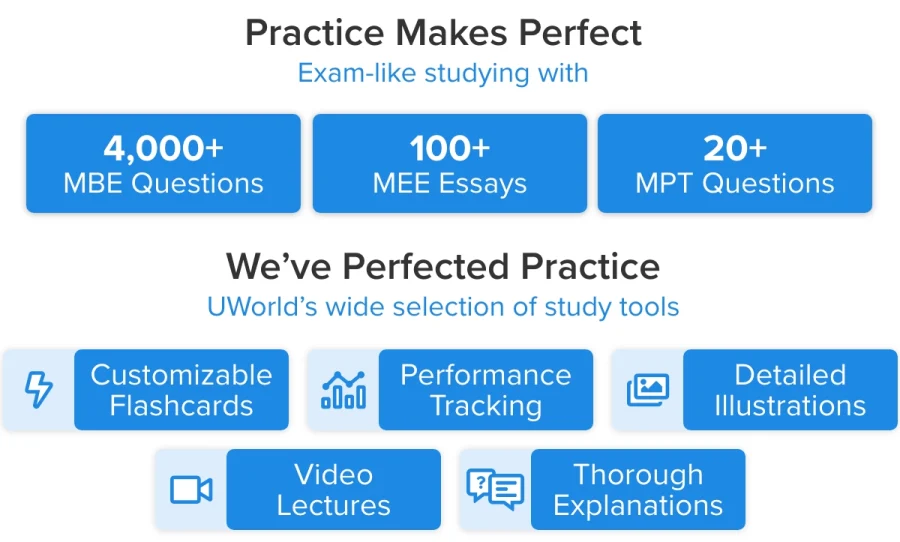
The TX State Bar Exam will be a challenging experience. But we are confident that if you prepare with the right bar prep review, you can perform well on the MBE and pass the bar exam.
Contact Details of the Texas State Bar
The Texas Board of Law Examiners is open Monday to Friday from 8 a.m. to 5 p.m. For contact information, see the table below.
| Method | Contact |
|---|---|
| Mailing Address | Board of Law Examiners
|
| Delivery Address | Board of Law Examiners |
| Fax | (512) 463-5300 |
| Phone | (512) 463-1621 |
| General Public Inquiry | [email protected] |
| Technical Assistance with your ATLAS account |
Texas Bar Exam FAQs
How Long Is the Bar Exam in Texas?
Can Anyone Take the Bar Exam in Texas?
To sit for the Texas Bar Exam, examinees must have a JD from an ABA-approved or state-accredited law school. Foreign law students with a first degree in law may sit for the bar exam if they have met particular educational or professional standards.
How Hard Is the Texas Bar Exam?
What Are Texas Bar Exam Application Deadlines and Fees?
How many times can I take the Texas Bar Exam?
How much does it cost to retake the Texas Bar Exam?
What is the minimum passing UBE score for Texas?
Does Texas offer reciprocity with any jurisdiction?
Can I transfer my MBE score from another jurisdiction to Texas?
Can I transfer my Texas UBE score to another jurisdiction?
What is the time limit for accepting a transferred UBE score in Texas (i.e., maximum age of the UBE score)?
You may transfer your earned UBE score from another jurisdiction to Texas for bar admission as long as you do so:
- Within two years immediately preceding the date an applicant submits a transfer application to us, or
- Within five years immediately preceding the date you submit a transfer application to the Texas Board of Law Examiners if you have been actively and substantially engaged in the lawful practice of law as your principal business or occupation for at least two of the last three years immediately preceding the date you submit your transfer application.
What is the Texas Admission Without Examination process like?
Texas will accept admission on motion if the applicant:
- Has been actively engaged in legal practice for at least five of seven years immediately preceding the application
- Has a Juris Doctorate (JD) from an ABA-accredited law school has a valid, active license
- Has been a member of the bar in good standing at all times
How Long Does It Take to Study for the Texas Bar Exam?
It takes 400 hours to study for the Texas Bar Exam. Most students cram these hours in 8-10 weeks before their exam, but if you’re looking for a more moderate schedule, start 4 months out (about 20 hours a week).
This time should be divided evenly between law study and outline memorization. The amount of time you will actually spend studying depends on your educational background and study techniques. Optimizing your bar exam study schedule is the best way to reduce the time you need.
Can You Practice Law without a Law Degree in Texas?
No, you cannot practice law without a law degree in Texas. You must be a licensed attorney with the Bar of Texas.
